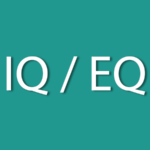Last updated: November 2016

All of us use reflection in everyday life to comprehend our experiences and/or practices to internalise the learning gathered from those events. In general, to reflect means to think about or reconsider something after the event took place. Such act of ‘looking back’ results in insight and learning.
However for higher level of learning and education mere reflection is not enough and researchers like Mezirow (1990) suggested that ‘critical reflection’ is needed for transformative learning. Critical reflection has been described by Mezirow (1990) as follows:
“… the process of becoming critically aware of how and why our presuppositions have come to constrain the way we perceive, understood, and feel about our world; of reformulating these assumptions to permit a more inclusive, discriminating, permeable and integrative perspective; and of making decisions or acting on these new understandings.”
In practice, after a happening/event, people follow a mental process to analyse, question, and reframe that experience. When they assess the experience with an aim to learn, it is called ‘reflective learning’. While it is done to improve the current practice of doing something it is called ‘reflective practice’.
For example we can consider an incident of ‘sending an online customer a wrong item’. After the mistake has been made we can reflect on it and superficially come to the conclusion that it has happened due to excessive orders and inadequate number of packaging employees and their lack of responsibilities. Such reflection would be ineffective from the learning point of view. If the organisation really wants to learn and improve their practice from this particular happening they should engage in a deeper reflection.
To conduct a deep and critical reflection, the organisation should reconsider its customer order processing systems and investigate root causes which could be related to the wrong assumptions about the roles and responsibilities, individual behaviourial patterns, and other similar past incidents (Aronson, 2011).
Undoubtedly, critical reflection to unearth deeper meanings requires more effort, time and motivations to go beyond the surface to investigate underlying beliefs, values and viewpoints.
Further Reading/References
Aronson, L. 2011. Twelve Tips for Teaching Reflection at All Levels of Medical Education. Medical Teacher, 33: 200-205.
Mezirow, J. 1990. Fostering Critical Reflection in Adulthood (ed). Jossey-Bass Publishers, San Fransisco.
Image: Pixabay
Author: Dr. Sewel Sodry
Dr. Sewel Sodry is an internationally acclaimed author and teacher of business management. He is also a specialist coach, trainer and educationalist. He holds a Master of Business degree from Victoria University, Australia and a PhD from King’s College (University of London).


